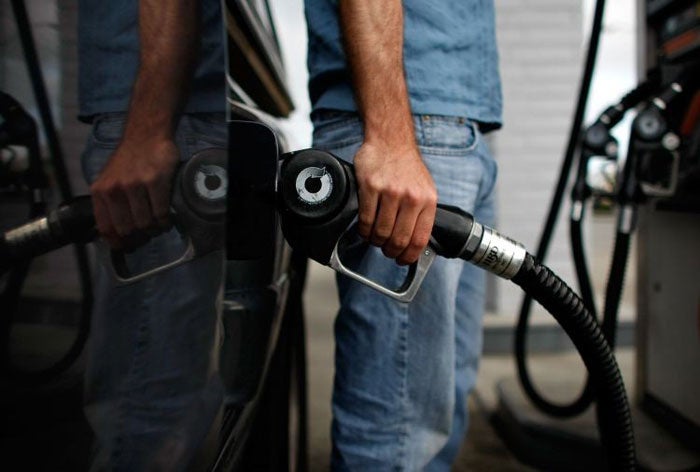Talks urged to avert fuel tanker strike

Downing Street urged unions and oil companies today to get round the table for talks to prevent a tanker drivers' strike, as senior ministers met to draw up contingency plans to keep vital services moving.
Prime Minister David Cameron and his Cabinet were this morning briefed on plans to put military personnel through an eight-day training course to take the place of striking drivers behind the wheel of commercial tankers. But Downing Street said the training has not yet started, as discussions with companies are still under way.
Asked whether motorists would be well-advised to rush to the petrol stations and fill up their tanks in the wake of last night's overwhelming vote for industrial action, a Number 10 spokeswoman said: "I think people should draw their own conclusions."
And she added: "Businesses and those who rely on vehicles for their work should ensure contingency plans are in place. It is always prudent to have contingency plans in place."
The spokeswoman said that the Government was sending out a "strong message" to both sides in the dispute that they should "get round the table and discuss this, because a strike and the disruption that would follow is in nobody's interests, particularly the UK economy's".
Around 2,000 members of the Unite union at seven companies were balloted for the first national campaign of action for over a decade, with those at five firms backing walkouts.
The union said strikes were supported by an average of 69% in the five firms, which deliver fuel to Shell and Esso garages as well as supermarkets such as Tesco and Sainsbury's. Unite drivers supply fuel to 90% of the UK's forecourts and the union said a strike could close up to 7,900 petrol stations.
Cabinet Office minister Francis Maude briefed colleagues on the Government's preparations to deal with any strike at this morning's weekly meeting of Cabinet, which followed a meeting of senior ministers from the departments of Transport, Energy and Environment, the Home Office and the Ministry of Defence.
Mr Maude said the Government had "learnt the lessons" of the previous disruption to petrol supplies in 2000, when pumps ran dry around the country, and was putting plans in place to keep Britain moving, but acknowledged that there was still "more work to be done".
"This was the fourth ministerial meeting on the resilience measures being taken regarding a pending fuel tankers' dispute," said the Downing Street spokeswoman.
"There was a ballot last night and there is the potential for a dispute. This is a dispute between an employer and employees, but clearly the ramifications if there is a strike are that there will be disruption and the Government is taking all the contingency plans we can, including ensuring that emergency services are in a good position should there be an impact on fuel distribution."
She declined to say whether this meant that stockpiles of fuel were being built up for use by emergency workers.
The spokeswoman said it would not be possible to train enough military personnel to cover for all missing tanker drivers in the case of a strike, but said that "other options" were being considered.
"There are discussions ongoing between the MoD and companies that have tankers in order that we can be in a position to train army personnel to drive those," she said. "Clearly there is a period of time while those drivers achieve the correct qualifications. It takes eight days.
"The number of military personnel who would be able to do this doesn't cover the distribution network, so other options are being looked at."
Downing Street said that the authorities were "generally speaking better-placed" than in 2000 to deal with the effects of a disruption to fuel supplies.
Labour leader Ed Miliband this morning said a strike should be avoided "at all costs" and urged both union and company chiefs to get round the table and negotiate.
Mr Miliband said: "We must avoid strike action at all costs, and the right way to do that is by both sides getting round the table and negotiating.
"That's what the Government should be urging, that's what I'm urging, and that's what the Confederation of British Industry (CBI) is urging."
PA
Join our commenting forum
Join thought-provoking conversations, follow other Independent readers and see their replies
Comments
Bookmark popover
Removed from bookmarks